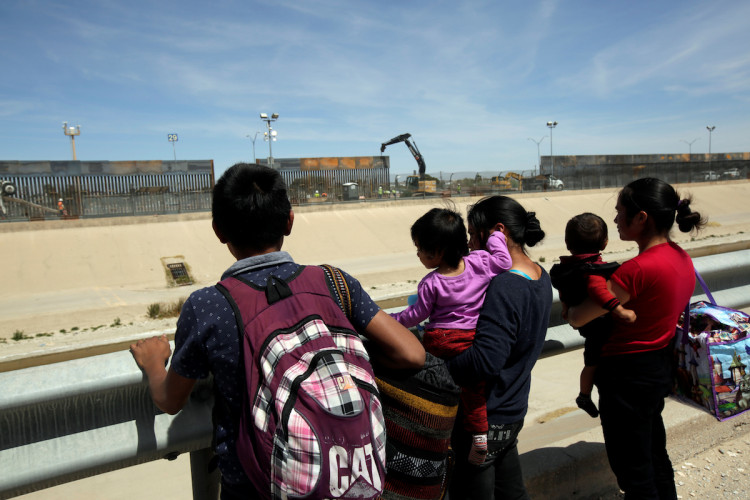Texas' controversial immigration law, known as Senate Bill 4 (SB4), faced skepticism from judges on the 5th U.S. Circuit Court of Appeals during a hearing on Wednesday. The law, which would allow police officers to arrest migrants and impose criminal penalties, as well as empower state judges to order deportations to Mexico, has been the subject of an intense legal battle between the state and the Biden administration.
Texas Solicitor General Aaron Nielson argued that the state has a right to defend itself, claiming that the law "mirrors" federal immigration law. However, Chief Judge Priscilla Richman, a George W. Bush appointee, questioned the state's authority to remove people from the U.S., noting that this is the first time a state has claimed such a right.
Nielson responded by stating that SB4 aims to ensure that federal immigration laws are followed and that the state has laws that are consistent with those provisions. He emphasized that Texas is not claiming to enforce federal law but rather to have laws that are the same with respect to these important provisions.
Justice Department lawyer Daniel Tenny rejected Texas' assertion that the federal government is not doing its job when it comes to immigration enforcement. He cited numerous statistics provided by the district court that demonstrate the federal government's active engagement in this area. Tenny also argued that Texas had gone further with its legislation than Arizona did in its 2010 law, most of which the Supreme Court struck down.
Judge Andrew S. Oldham, a Donald Trump appointee, appeared more receptive to Texas' argument and pressed the Justice Department on why it claims that arresting people who cross into the U.S. in areas that are not ports of entry is "exclusively federal." Tenny maintained that the Supreme Court has consistently recognized that immigration enforcement is reserved for the national government.
The White House has called the Texas law "harmful and unconstitutional," with press secretary Karine Jean-Pierre stating that it will make communities in Texas less safe, burden law enforcement, and sow chaos and confusion at the southern border. The Justice Department sued Texas in January, asserting that the U.S. Constitution gives the federal government the authority to regulate and control immigration and international borders.
If SB4 takes effect, it could significantly impact the entire U.S. immigration system, potentially leading other states to adopt their own immigration laws. Iowa lawmakers have already passed a similar bill, making illegal immigration a state crime and allowing state courts to order deportations. However, if the Supreme Court ultimately strikes down SB4, it may also invalidate other states' attempts at similar legislation.
The legal battle over SB4 has drawn criticism from the Biden administration and rights groups, with the American Civil Liberties Union (ACLU) warning that the law could lead to discrimination and racial profiling. The ACLU has also outlined potential scenarios in which asylum seekers could be removed from the country before their cases are processed, and widespread enforcement could affect Texas businesses that rely on migrant labor.
Mexico has also expressed concerns about SB4, questioning Texas' ability to enforce immigration laws and warning that it could violate the human rights of over 10 million people of Mexican origin in the state. The Mexican government plans to file a legal brief outlining the potential effects the law could have on U.S.-Mexico relations.
As the legal battle over SB4 continues, the outcome could have far-reaching implications for immigration enforcement in the United States. The appeals court's decision, and potentially a future Supreme Court ruling, will determine whether states can adopt their own immigration laws or if this power remains exclusively with the federal government.






